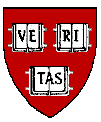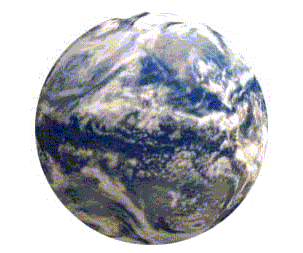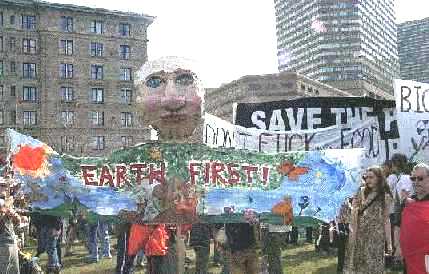 |
Harvard Seminar on Environmental ValuesSeminar Theme 2000-2001New Century, New Science, New Values: Environmental Thinking for the 21st Century |
 |
[ Bottom of page | 2000-2001 Seminar Schedule | Archive of 1999-2000 Seminars | Archive of 1998-1999 Seminars | Archive of 1997-1998 Seminars | Archive of 1996-1997 Seminars | University Committee on Environment | Humanities Center - FAS | Harvard Home Page ]
At the ouset of a new century, it is apparent to thoughtful people from all walks of life in cultures around the world that humanity confronts daunting challenges for its survival in the years ahead. In the face of mounting evidence of environmental deterioration and patterns of expanding human consumption, it is the scientists that have led the way in pronouncing numerous warnings about what lies ahead for humankind. In 1992, the year of the UN Conference on Environment and Development in Rio de Janeiro, a majority of the living Nobel laureates signed a statement that put it quite starkly:Global climate change -- induced, in part it would seem, by human activity -- provides a dramatic example of the unsettling circumstances which we now face. While the scientific evidence for anthropogenic climate change may not be conclusive, it is suggestive, and scientists have themselves warned politicians and the public that "...the present level of scientific uncertainty does not justify inaction in the mitigation of human-induced climate change and/or the adaptation to it." (American Geophysical Union, "Climate Change and Greenhouse Gases," Washington: AGU, December 1998)."human beings and the natural world are on a collision course. Human activities inflict harsh and often irreversible damage on both the environment and on our critical resources. If not checked, many of our current practices put at serious risk the future that we wish for human society and the plant and animal kingdoms, and may so alter the living world that it will be unable to sustain life in the manner that we know. Fundamental changes are urgent if we are to avoid the collision our present course will bring about. (World Scientists' Waring to Humanity, Cambridge: Union of Concerned Scientists, 1992).
There are indications that political leaders and their advisors are beginning to realize the gravity of our circumstance and the need to act. In a recent interview with the BBC in London, Roger Ballentine, President Clinton's chief adviser on climate indicated:
"The science is absolutely convincing to policy makers. We are risk managers - we don't have to wait for 100% certainty... there is more than enough science to persuade us that we have to take action now. And mainstream scientists will tell you there is simply no doubt that climate change is happening." (BBC, Wednesday, 6 September, 2000, 11:36 GMT 12:36 UK "Global warming 'a reality.'").Nevertheless, little concrete has been accomplished to reduce or reverse the troublesome trends toward biogenetic extinction, resource depletion and expanding emissions of carbon dioxide on a global scale. In an election year, themes of self-imposed, self-restraint do not seem prominent in public policy discussions. As a consequence it is becoming apparent to many observers that human societies will require far more than further scientific research or technological innovation to transform their current self-destructive behavior in the ecosystem.Indeed, the scientific insights achieved over the last century suggest to many observers that only a significant transformation of values will enable humankind to alter its catastrophic "collision course" with the natural world. During this year the Seminar on Environmental Values will reflect from a wide variety of perspectives in the humanities, the natural sciences and social sciences on the broad question:
In light of the new insights we have acquired from the sciences over the last century concerning the role of humankind in the ecosystem, what new kinds of human values might be required for humanity's survival in the century before us?

Day Topic Time and Location or
Contact Information
Fall Semester 2000
October 18
WednesdayHarvard Seminar on Environmental Values
Bill McKibben, Environmentalist, Author and Fellow, Center for the Study of Values in Public Life, Harvard Divinity School. "How Much is Enough?: The Environmental Moment as a Pivot Point in Human History."(Some Readings and Resources).Barker Humanities Center
4:00-6:00 PM -- Room 133
12 Quincy Street.
For information contact
Tim Weiskel
tel. 496-5208
Special Seminar Session December 6 Wednesday Harvard Seminar on Environmental Values
Leo Marx, R. Kenan, Jr., Professor of American Cultural History (Emeritus) Massachusetts Institute of Technology."The Pandering Landscape: On the Illusory Separateness of American Nature" (Full Text of Paper -- MS Word format).Barker Humanities Center
4:15-6:30 PM -- Room 114
12 Quincy Street.
For information contact
Tim Weiskel
tel. 496-5208December 13 Wednesday Harvard Seminar on Environmental Values
Donald A. Brown, Senior Counsel for Sustainable Development, Pennsylvania Department of Environmental Protection. "American Shame: The Extraordinary Ethical Failure of the United States To Deal with Global Warming." (Full Text of Seminar Reading:"Climate Change ...and Ethical Responsibility" - MS Word Format) Related Resources on Climate Negotiations .Barker Humanities Center
4:00-6:00 PM -- Room 133
12 Quincy Street.
For information contact
Tim Weiskel
tel. 496-5208
Spring Semester 2001
February 27
TuesdayHarvard Seminar on Environmental Values & the Interfaculty Initiative on Water and Health.
Dr. E. Michael Thurman, Research Hydrologist, Organic Geochemistry Research Laboratory, U.S. Geological Survey, Lawrence, Kansas. "What's in Our Drinking Water? Reflections on a Decade of Water-Quality Research"4:00-6:00 PM - Kresge Building (G1)
Harvard School of Public Health,
(entrance at) 655 Huntington Ave., Boston.
For further information see HSPH Directions
or contact Tim Weiskel
tel. 496-5208
March 21
WednesdayHarvard Seminar on Environmental Values
Philip Shabecoff, Environmental Journalist, former New York Times Environmental Reporter, Author, founder of Greenwire. "Binding Prometheus: Toward Democratic Governance of Science and Technology."Barker Humanities Center
4:00-6:00 PM -- Room 133 - Plimpton Seminar Room
12 Quincy Street.
(Click here for map.)
For information contact
Tim Weiskel
tel. 496-5208
April 19
ThursdayHarvard Seminar on Environmental Values
Paul R. Epstein, M.D., M.P.H. and Associate Director of the Center for Health and Global Change, Harvard Medical School; and James McCarthy, Alexander Agassiz Professor of Biological Oceanography, "Putting Projected Climate Change in Context: The Implications for Human Health."Barker Humanities Center
4:00-6:00 PM -- Room 133 - Plimpton Seminar Room
12 Quincy Street.
(Click here for map.)
For information contact
Tim Weiskel
tel. 496-5208
Archive of 1999-2000 Seminars | Archive of 1998-1999 Seminars | Archive of 1997-1998 Seminars | Archive of 1996-1997 Seminars
To receive further information about the Seminar on Environmental Values or to offer suggestions to us click here to enter your specific request or suggestions.Or for further information on specific programs or activities of the Seminar on Environmental Values contact :
Dr. Timothy C. Weiskel
Director, Seminar on Environmental Values
University Committee on Environment
20 Oxford Street
Cambridge, MA 02138or call:
tel. 617-496-5208

[ Top of page | University Committee on Environment | Humanities Center - FAS | Harvard Home Page ]
